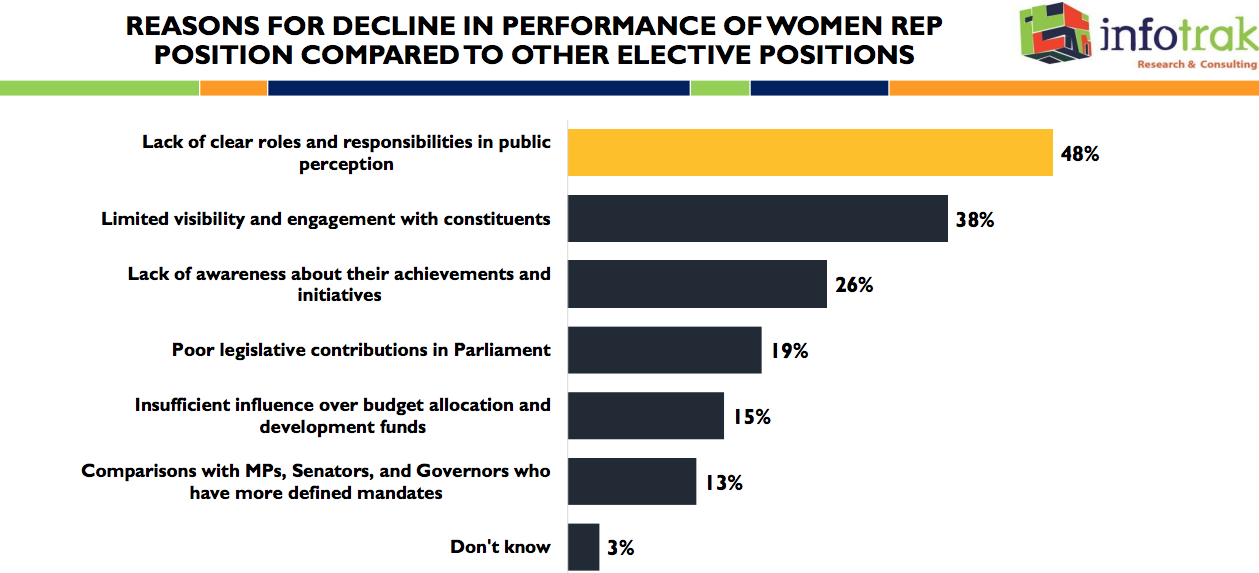

The majority of Kenyans believe the lack of clear roles and
responsibilities is the main reason for the decline in the performance of woman
reps, a survey shows.
The survey by Infotrak Research and Consulting said 48 per cent of respondents interviewed said the absence of clear roles was the leading factor.
The study said 38 per cent named limited visibility and engagement with constituents as the reason the performance of the position has declined compared to other elective seats.
It added that 19 per cent named poor legislative contributions in Parliament while 15 per cent cited insufficient influence over budget allocation and development funds.
The survey further noted that 13 per cent of respondents said women reps have less defined mandates compared to senators, MPs and governors.
The elected leader's performance index was conducted between October – December 2024, covering all 47 counties, 290 constituencies and 1450 wards with an overall sample of 59,600.
“Each constituency was treated as an individual universe and assigned a cluster sample which ranged between 200 and 451 respondents,” the report said.
Within each constituency, sampling frames were designed using population proportionate to size guided by the latest IEBC Voter register and catered for demographics such as age, gender etc.
Data was collected through Computer Assisted Telephone
Interviews (CATI).
The final questionnaire was structured using a 1-10 Likert scale where 1 was very poor and 10 was excellent.
The residents were asked to rate their MPs, senators, and county women representatives' overall performance based on the scale.
The average rating by all the respondents from each constituency/county determined the final rating of those elected leaders.
The survey further showed that influence over allocation and use of public funds (NG-CDF/county funds) was the most important factor to consider when rating an elected leader at 27 per cent.
It was followed by Transparency and accountability (24 per cent), delivery on campaign promises (24 per cent), initiation of development projects (23 per cent), accessibility and responsiveness to constituents (16 per cent), participation in legislative debates and motions (10 per cent).
Others are personal experience and interaction with the leader (10 per cent), compared performance with past elected leaders (nine per cent), sponsorship of Bills and policies (eight per cent), engagement in public forums and town halls with constituents (seven per cent), media visibility (six per cent) and information from media, community discussions, and political debates (six per cent).
















